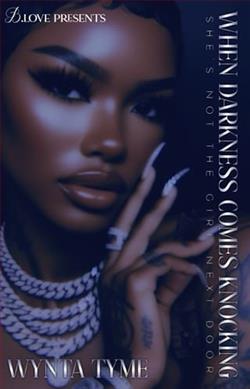Page 181 of In the Night Garden
“We think it is right and proper for a girl to die. Girls must die if worms are to feast, and we think it is extremely proper for worms to feast.”
I grimaced; Sleeve recoiled. “Thank you for your honesty,” I said, “but I think we shall have to disagree.” Their faceless smiles broadened. “For now,” I added.
And so we went to the spiders. “I did not want to do this,” Sleeve groused, “but you are dear to me.”
The spiders kept to their webs like acrobats determined not to touch the ground. I thought Sleeve’s needles must have made them nervous, but she put on a very brave face and asked her question. The spiders only laughed, high, tinny laughter like the shaking of marsh reeds.
“What do you know about anything?” they jeered. “Spiders don’t weave, they eat. They spin and hunt and catch and feed. You have always been the stupidest of us. Whoever heard of a spider weaving dresses? Associating with birds? What is wrong with you, Sleeve? You are the worst sort of maiden aunt for this child. Girls weave, you freakish, hideous thing! Girls make dresses. Girls squeal very loudly and leap about and clutch their smelling salts.”
Sleeve said nothing. Her body slumped, as though she had expected no more, and I could hear her sniffling against the dust. Well, I certainly leapt about then, and blew their webs into ruined threads. “What do you know?” I cried, kicking their silk in. “Sleeve makes the most beautiful things in the world while you sit about snickering into your ratty old webs! You know nothing! I have never made a dress in my life—she has made dozens! Does that make her a girl, and I a spider? And I have never smelled salt in all my days; what a stupid idea! Come, Sleeve, your cousins are the worst relations I can imagine.”
I cannot really say I was a well-behaved child. I cannot really say I have learned much since.
Her back was straight and her steps high as we left them, and as we walked I saw that her faceted eyes had a gleam in them. By gently pricking my toes she coaxed me down into the Clock-makers’ Square, with all its clicking and shadows and tap-tap-tapping of hands against numerals. She led me to a door all of locks, every sort of lock you can imagine: huge brass bolts to tiny, intricate silver keyholes no wider than a feather, wooden locks with gaping slots and golden locks with birds carved into their faces, locks so old and worn that only rust was left, and locks in the shape of open, staring eyes blown from purest glass.
I put my hands against them and the door swung open. There was no one inside.
“Hello?” I called, and Sleeve echoed me.
There was movement in the rear of the workshop, a crash and a jangling. Two golden eyes blinked at me in a wreckage of plate metal and gears which had been her camouflage.
“I am not supposed to come out when company is present,” the creature said uncertainly, all metal and whirling clock hands.
“But there is no one here to call us company and make us tea.”
“Mother is out,” the glittering woman said.
“You can answer our question just as well,” cried Sleeve, delighted, introducing the woman as Hour, who had spider silk in her joints. “What is it that girls do in the way that spiders weave?”
Hour seemed to consider it, wringing her metal hands. “I do not know,” she answered after a long pause.
“What do you suspect?” I encouraged.
The woman looked wretched, as wretched as a face made out of broken clocks and breastplates can look. “I suspect,” she whirred tentatively, “that they live in castles. Beyond that it is hard to say.”
“A bell to
wer is like a castle,” I said. Sleeve rolled her eyes.
“I am sorry, but it is not,” said the ticking woman. “It does not have a Prince inside or outside, and there is no portcullis or moat or chapel. Many castles have towers, but a tower is not a castle all by itself.”
“I am sure I do not wish to live in a castle, then. It sounds vile,” I answered. “And what in the world is a Prince?”
Hour brightened. “If you would like to know I can explain about primogeniture and patriarchal descent systems,” she said eagerly.
“There are no castles handy,” chirped Sleeve hurriedly, “so I think we shall have to seek elsewhere. Do not worry! At least you will not have to ask the squid. They are ghastly.”
“I am sorry,” said the machine, slumping at the shoulders. “I will try to have the right answer, if you will come back later.”
I put my hand on the creature’s shoulder. “It’s all right; I don’t know, either. But spiders are funny and determined things, and must be treated carefully.”
“Yes,” she said. “It is the same with clocks.”
We left the strange little shop, and Sleeve seemed glad to be away. She took me next up to the high, windy peak of the highest tower in the city. “Is this a castle?” I asked.
“Certainly not,” puffed the spider.
And that is how I met the Sirens, who were frightening as fire unchecked, but pretty enough to make me bashful. They nuzzled Sleeve in a very unbirdlike fashion, their women’s legs pointing and skipping in joy.















